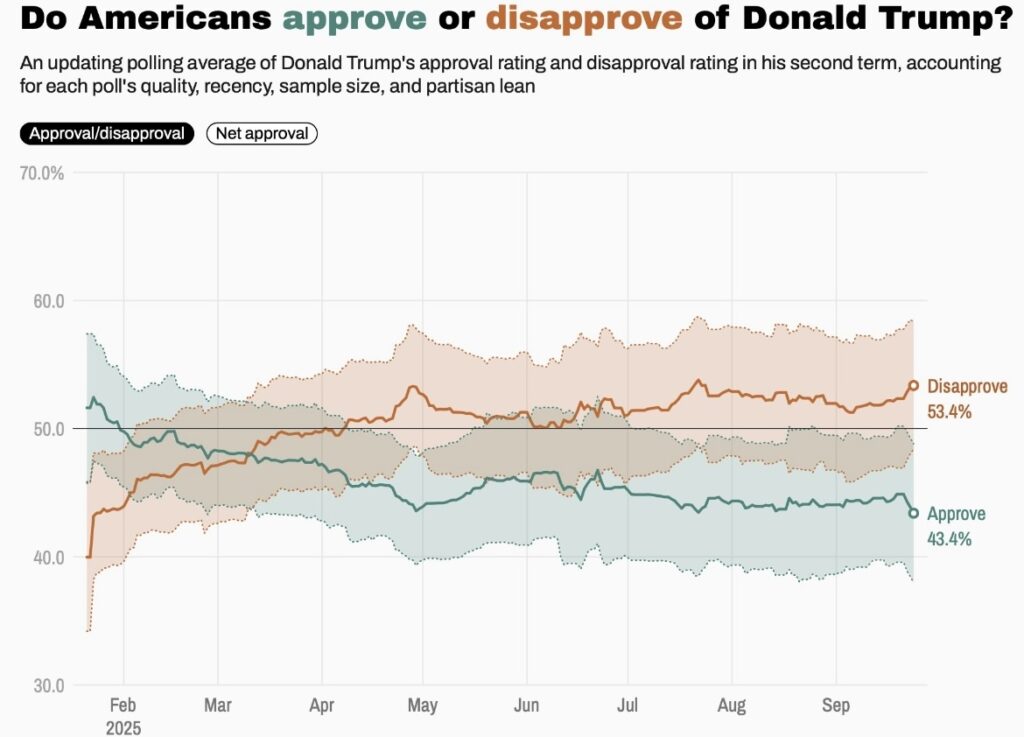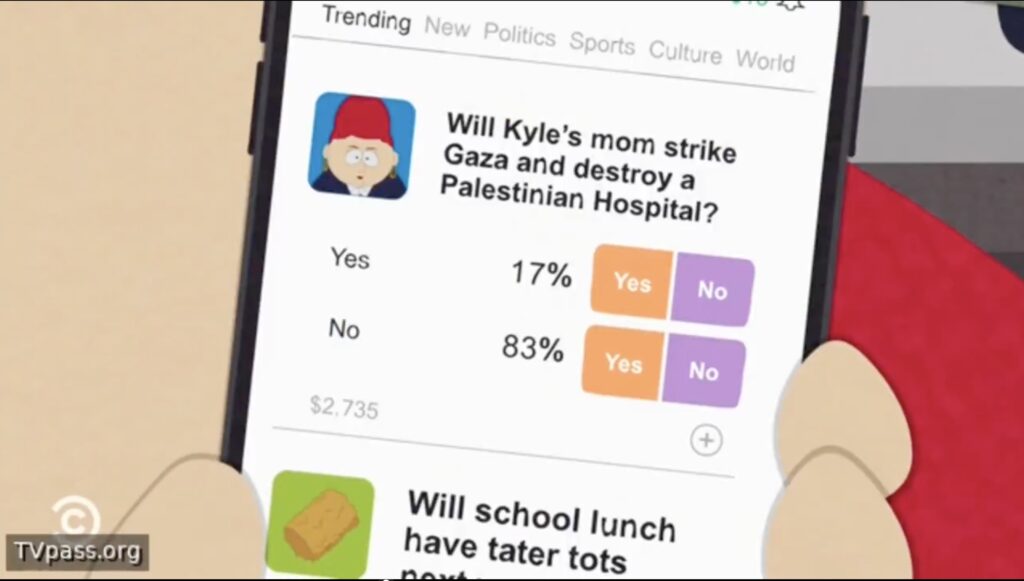
In a short exchange with a reader about the incitement-to-violence standard, I got to talking about our jury system. I told him I’d witnessed it in action dozens of times (as a law clerk for a trial judge, as an occasional trial attorney, and finally as a member of 3 or 4 Philadelphia juries).
The vast majority of times, I watched in fascination as an assemblage of 8 or 12 people got both the “facts” and the “law” almost exactly right by bringing their randomly-chosen perspectives along with their common-sense and community-based morality (what we can tolerate as a group, and what we can’t) to the matter of guilt or innocence. These men and women would disagree, even argue or pout at one another, but after one day or several would reach consensus and a result that invariably felt right under the circumstances..
Then I realized: the vast American public determines what is acceptable and unacceptable in our poliics much like the jury system.
It’s not always paying attention to our leaders or “the state of our nation” because it’s busy raising families, going to work, shopping, being entertained or just distracted. But when the American public starts to focus on its job of giving or withholding its consent from its representatives—because it simply can’t ignore what’s happening any longer—it can be both quick and true in its judgments. As in: Maybe I can tolerate this, but I won’t tolerate that.
After hearing the sucking sound of consent being withdrawn, the exhale of opposition can often be heard next. When tens or hundreds or millions of Americans raise their voices to say, “Hey, wait a minute,” the political consequences can be swift, harsh & certain, saying in effect: “This is the America that I’m a part of, but where we’re headed is not.”
The causes of shifts like this and when have they happened before are not just for historians to consider.
Was the moment Americans turned against the Vietnam War when we saw (and absorbed the impact of) that photograph of the naked, crying girl with napalm burns in June, 1972, or did the change of heart come somewhat earlier? When did our nation go from being against same-sex marriage to being for it? (Was it one big thing that changed our minds or a build-up of several smaller ones?) Didn’t the American public turn-as-one against Joe Biden on June 28, 2024, the day after his fateful, pre-election debate with Trump? Sometimes we know exactly when the shift occurred. Other times, our acceptance or rejection just seemed to materialize out of the ether.
I have never watched Jimmy Kimmel’s late-night show, but know that his stand-up routines have skewered both Trump and our politics over the years, and how broad & deep “the comedic bond” with the American audience can be—because all of us want to be free to laugh at our leaders when they deserve it. So Trump’s and FCC Chair Brendan Carr’s ham-handed attempt to cancel Kimmel’s comedy a little over a week ago FELT (at least to me) like a turning point. As in, it feels like the American tide is turning against Donald Trump in real time. I could almost hear the whoosh of it.
But then I remembered that I’d had dreams like this before, such as after the Washington Post’s release of that infamous grabbing-women-by-their-privates tape in October 2016; while the J6 insurrection was unfolding at the Capitol in 2021; after Trump’s felony conviction in a New York Court in May of 2024. None had individually (or even as they compounded) changed our collective mind, so why would his attempt to cancel Kimmel be any different?
It’s because a week or so ago, Trump messed with American’s funny bones (and their First Amendment/free speech backstory) at a time where “cancel-culture” may be our worst damnation—due in-no-small-part to Trump himself. But despite the hypocrisy, he used the government’s coercive power to pull Kimmel off-the-air because he couldn’t take this (or maybe any) comic’s point of view. Was censoring political comedy, at long last, Trump’s “bridge too far” in the public’s mind?
Well a couple of prominent observer/commentators thought the public finally changed its mind too. Moreover, the same shift in the American mood seems to have registered as more than a blip in national polls. Is it all just wishful thinking? Here’s what they’ve been saying over the past week.

Robert Reich worked in Washington for the Ford, Carter and Clinton administrations (in other words, he’s experienced a lot of government over the years.) After leaving public service, he’s been a professor, author and commentator on American politics. Reich is also very smart in my opinion, an intelligence that’s leavened by a marvelous sense of humor. For example, being short of stature (4’ 11”) due to a genetic disorder, he called his most recent book, “Coming Up Short: A Memoir of My America.”
Well Reich was at it again this week in a Substack that he sent out on Tuesday called “The Sleeping Giant is Awakening: after a week of authoritarian excess, the nation is turning on Trump.” This is how he begins his post:
Friends,
I can’t tell you exactly how I know, but after 60 years in and around politics I’ve developed a sixth sense, and my sixth sense tells me the tide is now turning on Trump.
This past week did it.
He then proceeds to list an example-a-day for the week of September 15, including Trump’s: suing the Times in a lawsuit that included “page after page of gushing praise for the president;” accusing a national reporter of “hate speech” and threatening him with consequences from Pam Bondi; having the FCC pressure broadcasters to cancel Jimmy Kimmel now, and other comic late show hosts, Jimmy Fallon and Seth Meyers, later; threatening to prosecute political rivals (James Comey, Letia James and Adam Schiff) “even though grand juries and federal prosecutors couldn’t find any evidence of wrongdoing;” and saying at Charlie Kirk’s memorial service that he “hates his opponents” and doesn’t “want what’s best for them.”
Reich wrote: “You could almost feel the great sleeping giant of America open an eye and frown, then blink both eyes and sit up and stretch, and then roar, ‘What the hell is going on here?’”
He went on to note protests and “boycotts” by Kimmel viewers and Disney customers, how Republican Ted Cruz spoke out against the censorship, and Disney’s bowing to the public outcry by returning Kimmel to the air. Reich recalled how the American public turned on Communist-witch-hunter Joe McCarthy’s cruelty in the 1950s, on the “white supremacists” who clobbered civil rights marchers in the 1960s, and on Richard Nixon’s mendacity during the Watergate scandal of the 1970s.
[The sleeping giant that’s the American public] is starting to roar again now — at the sociopathic occupant of the Oval Office who won’t tolerate criticism, who in one wild week revealed his utter contempt for the freedom of Americans to criticize him, to write or speak negatively about him, even to joke about him.
Maybe I’m being too optimistic, but I’ve seen a lot. I know the signs. The sleeping giant always remains asleep until some venality becomes so noxious, some action so disrespectful of the common good, some brutality so noisy, that he has no choice but to awaken.
And when he does, the good sense of the American people causes [the giant] to put an end to whatever it was that awakened him.
Ann Cox Richardson, an American historian with a pod-cast and Substack that’s followed by millions, said on YouTube in a posting called “The Tide Turned this Week” that she feels the same as Reich, while providing additional reasons. For example, she says more Americans have begun to realize: that it’s not just “the worst of the worst” who are being targeted by ICE but also valued community members; that RFK Jr. is threatening our health with this attacks on science and the medical community; that there may be more to the Epstein files as his victims begin to speak out; that the American farmers who have long supported Trump are being devastated by tariffs and the loss of both documented and undocumented workers; and that the claw-back of federal funds has disproportionately affected rural districts making its largely Republican legislators reluctant to face their voters in town meetings.
Cox believes that more Republicans as well as business owners are realizing that the best way to retain power or remain profitable is to stop siding with Trump’s MAGA agenda and that further cracks in his coalition will begin to show during the impeding government shut-down. But this is still a fairly small group; is enough of the American public really starting to rebel?
This is where Nate Silver steps in. Silver has made a name for himself by “averaging” new national polls that (among other things) attempt to assess Trump’s public approval and disapproval. After the Kimmel brouhaha, Silver’s Trump approval averages dipped down fairly sharply, while his disapproval rating ticked up in the same degree.

So have we finally reached that moment where our views of everything-Trump have changed?
Reich argues that authoritarian over-reach has brought Trump to the point of no return.
Richardson piles health, economic and community concerns onto this conclusion.
Silver’s polling data suggests that some or all of these factors have begun to move the dispproval needle.
From where I sit, I’d argue that more than any other thing it’s Trump’s failed attempt to cancel political comedy (and its free speech implications) that’s finally changed the public’s mind.
It’s been commonly argued that Social Security is the third rail for the American public, placing in jeopardy anyone who dares to touch it.
Well I think messing with political comedy is even more consequential in our snarky and cynical age.
Because Trump can make fun of others but not himself, his long slide into powerlessness his finally begun–and it will only be hastened by the return of South Park–which provided a 20-minute capstone in these fateful days-after.

As in: “Will Kyle [Broflovski’s Jewish] Mom Strike Gaza and Destroy a Palestinian Hospital?”
As I’ve tried to demonstrate above, the comedy that’s aimed at our politics today is off-limits to government censorship.
So thank God the South Park guys took all the time they needed—when many feared they’d been cancelled too—to create another, near-perfect episode in what’s become this season’s favorite opera-buffa.
The episode’s themes included (but were not limited to):
1. turning nearly everything in our play-oriented society into a gambling bet;
2. throwing “anti-semitism” around in an irresponsible manner to juice the gamblers’ emotions (all while the Jewish holidays are on-going, no less);
3. Trump’s attempts to abort his “butt-baby” with Satan because (as JD Vance reminds him) having a baby around will be an intrusion on fun times at Mar-A-Lago, MAGA rallies, and sporting events;
4. how the FCC’s chair (and Kimmel nemesis) Brendan Carr comes to suffer his own form of intestinal vengeance; and last but hardly least:
5. how the wily J.D. is methodically scheming to keep his place in The Grand MAGA Succession.
It was a lot of comic ground to cover in what was, after all, just a third of an hour. But man-o-man, was I grateful to see it in a week that seemed to have more than the usual cavalcade of horrors from Trump world.
In this week’s Carr-Vance storyline, here is the innocent-seeming JD entering Carr’s hospital room after Carr is mistakenly stricken with a cat-borne, brain-eating disease called “Toxoplasmosis”—funny in its own right given the way the administration treats health risks—after Carr gets caught up in one of Trump’s failed attempts to induce the abortion of his misbegotten child.

This is FCC Chairman Carr siting in his own revenge while giving a frozen “Heil” as his little visitor approaches.

And finally this is JD, his expression transformed as he mutters to Carr the now infamous words that were also spoken to Kimmel’s broadcasters Disney, Nextar & Sinclair:
Mr Carr, why do you keep melding in my plans? I have been trying to convince the boss to get rid of this baby. I am next in line to be president. This baby cannot be born. If you continue to interfere, I will make things very difficult for you.
We can do this the easy way, or the hard way.

JD probably won’t be bragging about the pro-Choice stance he takes here, unlike like his lame attempt to neutralize his first appearance on South Park a few weeks ago. For that matter, it’s unlikely that Carr, Trump, “special advisor” Don Jr., or Benjamin Netanyahu will be bragging about their well-deserved man-handlings either.
And last but hardly least: thank you South Park for your powerful & long-overdue shout-out to Jewish mothers everywhere as Kyle’s mom confronts Israel’s leader about his mishigas and the impacts it’s had on her.

More evidence (if we needed it) that things actually are taking a turn for the better.
This post was adapted from my September 28, 2025 newsletter. Newsletters are delivered to subscribers’ in-boxes every Sunday morning, and sometimes I post the content from one of them here, in lightly edited form. You can subscribe by leaving your email address in the column to the right.




